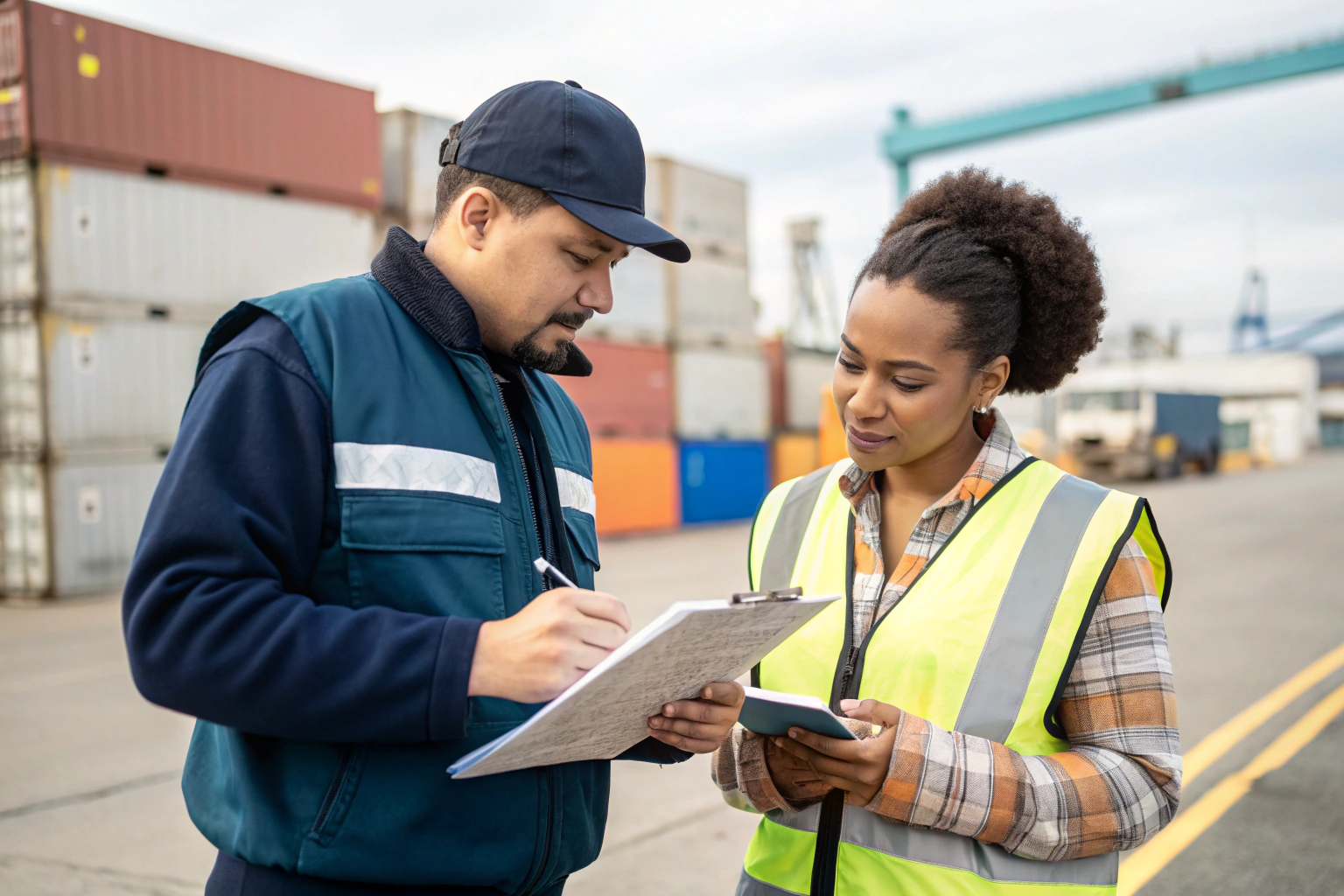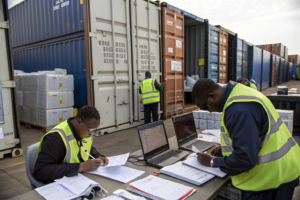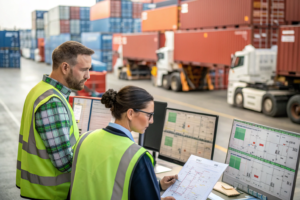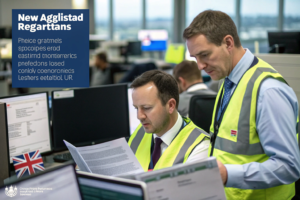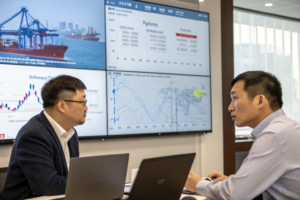Customs penalties are more than just paperwork mistakes—they can cost thousands, delay deliveries, and damage your reputation with customs authorities. Many importers who handle logistics alone find themselves facing fines they didn’t even know existed.
By working with an experienced freight forwarder, you gain a shield against avoidable penalties. We understand customs laws in both China and the destination country, manage the paperwork, and intervene proactively when risks arise.
Let me show you how we at GeeseCargo reduce the chances of your shipment being flagged or penalized. These are lessons learned over years of clearing cargo across Asia, Europe, and the Americas.
What Are the Most Common Customs Penalties?
Many penalties stem from avoidable mistakes: wrong product codes, inaccurate values, or failure to meet textile import labeling laws. Even one misstep in paperwork can trigger audits or financial penalties.
Freight forwarders help you avoid these errors by preparing accurate documentation and ensuring compliance before shipment leaves China. Prevention is cheaper than penalty resolution.
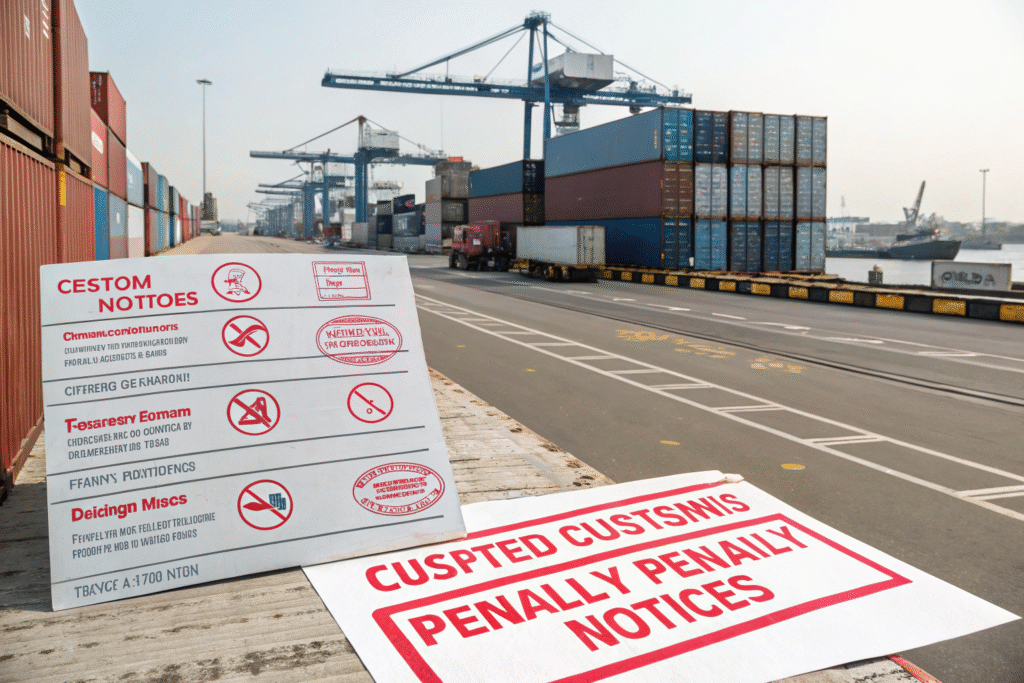
Why Are Incorrect HS Codes a Major Issue?
Each product you import must be classified under the Harmonized System (HS) code. This code determines the duty rate. A slight error—say, coding a cotton hoodie as synthetic—can lead to fines or even cargo seizure.
We cross-reference product specs with the official HTS code directory and consult with in-house brokers. This ensures proper classification and duty estimation, especially for fashion items which are often misfiled.
We also use automated validation tools like TradeMap to double-check codes based on the product and destination.
How Do Declared Values Trigger Fines?
Customs officials check declared values to ensure you're not under-reporting. If the invoice value seems suspiciously low, it triggers a Value Verification Review.
We help you avoid that by aligning declared values with market rates and freight costs. We also prepare justification documents—like supplier agreements and third-party valuation data—before goods ship out.
Our team monitors recent penalty cases published by U.S. Customs and Border Protection to stay updated on red flags and update your files accordingly.
How Do Forwarders Ensure Compliance From Day One?
The best way to avoid penalties is to ensure compliance before the cargo even reaches the port. That’s why we audit your documents, packaging, and supplier compliance before pickup.
We work closely with your Chinese factories to ensure labeling, invoices, and packaging meet international standards. This early involvement is critical in stopping problems before they start.

What Documents Must Be Checked Before Shipping?
Here’s a checklist we review before any apparel shipment leaves China:
- Commercial Invoice (with accurate unit price and origin)
- Packing List (dimensions, weight, carton count)
- Certificate of Origin
- Textile Declaration (for garments)
- HTS Codes + Descriptions
- Import Licenses or IOR numbers (if needed)
Platforms like Flexport and WiseTech Global offer automation tools—but we still do manual checks for garment-specific declarations.
How Do You Verify Factory Compliance?
Some penalties stem from non-compliant suppliers who mislabel goods or provide forged docs. We evaluate each factory’s export license, documentation reliability, and packaging practices.
We also provide photo audits before loading and reject shipments if label or pack requirements aren’t met. If your product is under regulatory scrutiny, like children’s clothing or organic apparel, we advise on CPSC and GOTS compliance in advance.
How Can Freight Forwarders Help During a Customs Audit?
Even if you’ve done everything right, your company may get audited. This happens randomly or due to past infractions. But when you work with a freight forwarder, you’re never alone.
We support clients during customs audits by providing complete documentation trails, shipment logs, and explanation memos. This shows the customs officer you’re not hiding anything and reduces escalation.

What Does an Audit Typically Involve?
U.S. CBP or other customs bodies may request:
- Your previous 12 months of shipment invoices
- Proof of payment to suppliers
- Declaration records for each container
- HTS code logs and customs entries
- Supply chain traceability for restricted items
We provide all this in organized digital folders. We also submit explanatory memos if they request clarification on textile classification or valuation methods.
We’ve helped several clients avoid major fines by resolving audit disputes in under 10 days using the ACE Portal and direct liaison.
Can You Defend Against False Accusations?
Yes. Sometimes customs wrongly claim under-declaration or misclassification. Our legal partners and in-house brokers review the claim and help draft responses.
We submit petitions under the Protest Procedure 19 CFR 174 to contest any wrongful charges and present evidence. This often results in reduced or waived penalties if supported with strong documentation.
How Does DDP Shipping Help Avoid Customs Fines?
EXW (Ex Works) shipping puts the customs responsibility on you. DDP (Delivered Duty Paid) shipping places it on us—the freight forwarder. That’s why DDP reduces your exposure to customs risks.
With DDP, we become responsible for documentation accuracy, duty estimation, and filing. We deal directly with customs on your behalf.
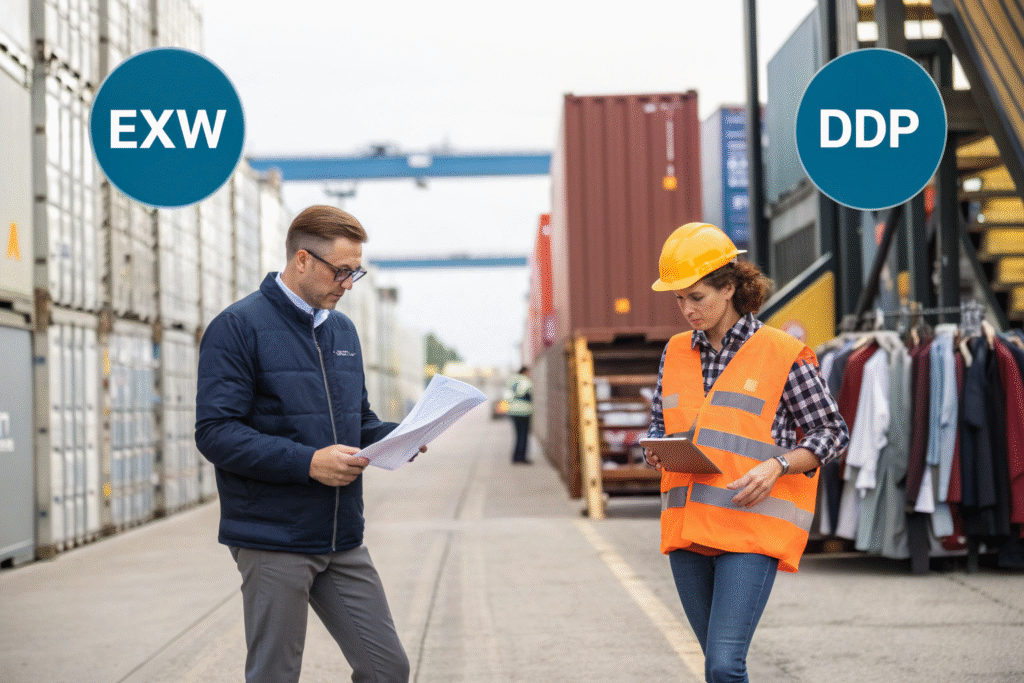
Why Is DDP the Smart Option for U.S. Importers?
With DDP:
- We declare your shipment using our IOR and broker license
- We ensure advance filing of Entry Summaries and Declarations
- We absorb any penalty or re-filing costs
- You get predictable landed costs with no surprises
This makes DDP ideal for busy buyers and Amazon FBA sellers. We even offer warehouse pre-labeling for final-mile U.S. delivery.
What’s the Cost of Fixing a Customs Violation Alone?
If you ship under EXW and face a violation, you must:
- Hire a broker
- Re-submit documents
- Possibly pay late fees, duties, and warehouse storage
- Delay your delivery by days or weeks
That’s why many clients switch to our DDP service. It costs slightly more upfront but saves thousands in avoided penalties and time loss. Platforms like Alibaba’s Freight Marketplace also now favor DDP for cross-border consistency.
Conclusion
Customs penalties are expensive, stressful, and often unnecessary. At GeeseCargo, we work to eliminate them by handling compliance from the very start. From documentation checks and factory audits to audit defense and DDP shipping, we reduce your risks at every step.
When you're importing clothing from China, especially in large volumes, the smartest move isn’t to handle customs yourself—it’s to partner with a forwarder who’s done it thousands of times.
Let us protect your supply chain and keep your costs predictable. With the right freight forwarder, customs becomes a formality—not a threat.
